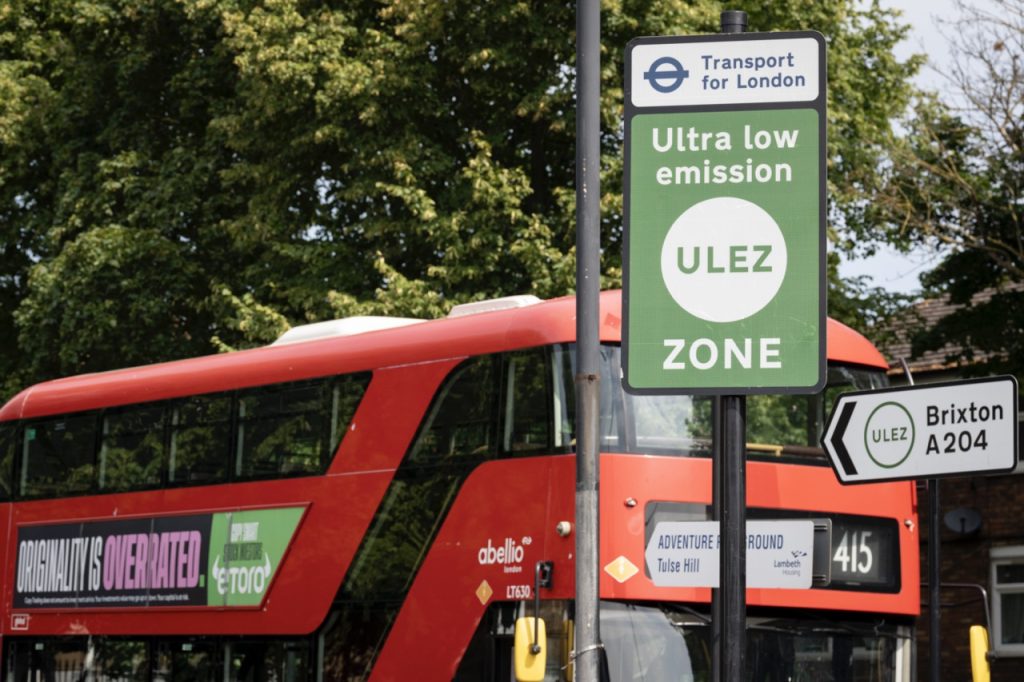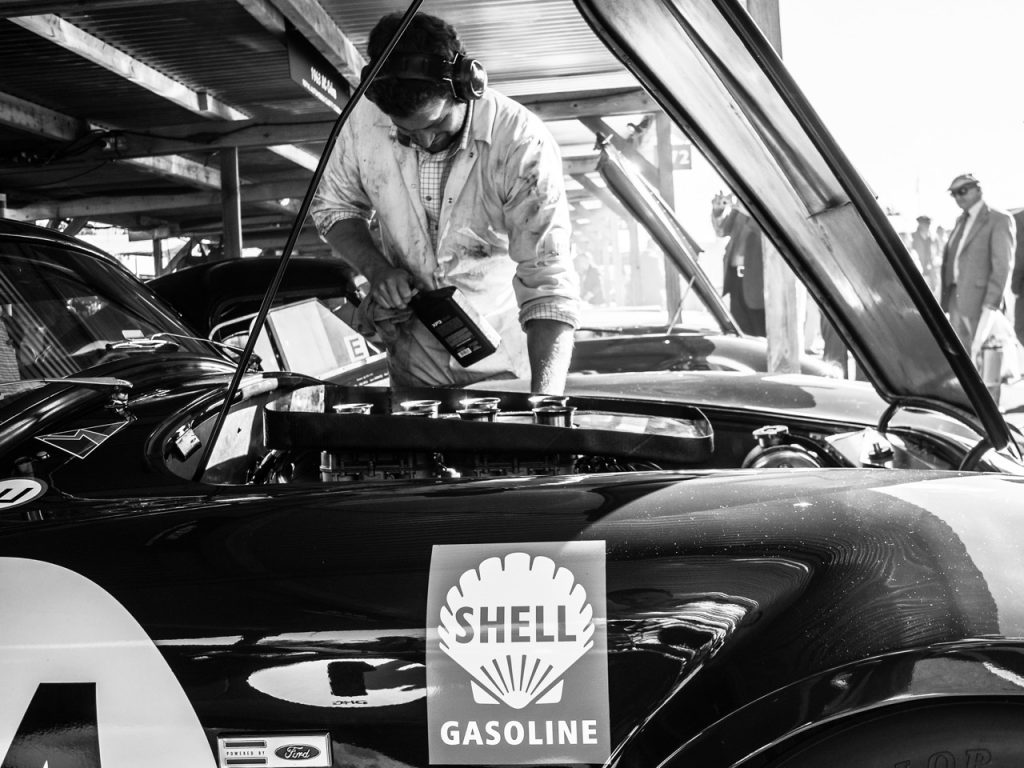How would you feel about being told you can’t drive your cherished car? And what if your favourite petrolhead events were banned by local councils?
It may sound far-fetched to some, but others will tell you that such Orwellian scenarios don’t only exist inside the head of the Mayor of London, Sadiq Kahn.


History shows that when push comes to shove, the freedom of the open road can be taken away from us. When the oil crisis took a hold in 1973, West Germany – the beating heart of the European car industry – banned driving on Sundays, just one of many fuel-saving initiatives. West Germany wasn’t alone; Belgium, Denmark, Italy, Norway, and Switzerland did the same.
More recently, this past February, one of Europe’s biggest crowd-pullers for car fans found itself given the cold shoulder by the local council. The Wörthersee Treffen event was founded in the early ‘80s to champion the Golf GTI, then grew into one of Austria’s biggest car shows, attracting a peak of more than 200,000 visitors over a weekend. The municipality of Maria Wörth ripped up its permissions, claiming “The effects of climate change, the responsibility of political decision-makers for the preservation of ecosystems, and the need to align actions at all levels according to the principles of sustainability make it necessary to place the future design under new premises.”
That last line could be condensed to ‘cars aren’t sustainable’. And it should send a shiver down your spine.
To the outside world, our hobby is questionable at best, downright dirty at worst. Vehicles burn fuel, create all manner of pollutants linked to respiratory and heart diseases, often make a racket, and tend to be portrayed in popular culture as anti-establishment.
Worse still, whenever you look at social media, it’s awash with videos of idiotic drivers crashing in front of crowds of car-spotters or ripping up local communities with an impromptu spot of street-racing. Even respectable events like Goodwood trend with clips of fire-snorting old cars and ear-splitting racing engines being warmed through in the paddock.

This is a problem. To organisations like Extinction Rebellion and Climate Defiance, our hobby has an unhealthy dependence on the fossil fuel industry – an industry that António Guterres, secretary general of the United Nations, believes holds “humanity by the throat.”
According to one carbon-offset agency Chrome Carbon, a mature tree absorbs carbon dioxide at a rate of 21kg a year, yet the average ‘collector’ car emits 1575kg of CO2 when driven 1000 miles a year (Other reports give a lower figure, but it is still not a thing to ignore). These figures say nothing of manufacturer or supplier emissions, where our classics compare quite favourably to new vehicles. But tailpipe emissions cannot be ignored, and you don’t need to join to the dots to see the challenges that lie ahead for car enthusiasts.
At least, that was the view of a panel of business leaders, car clubs, restoration companies, sustainable fuel producers and environmental consultants, during a seminar run by the Association of Heritage Engineers (AoHE), a not-for-profit organisation that seeks to highlight all the good that ‘motive heritage’ has to offer.
The view was that if the hobby collectively doesn’t do its bit and address its impact on the environment, then it will find itself facing far more than a bump in the road.
We learned how organisations such as the Vintage Sports Car Club (VSCC) and the Bugatti Owners Club (BOC) have turned to external expertise to calculate their total carbon footprint for all activities in which they are involved, and then worked out how best to offset their environmental impact. But rather than simply offset the emissions being generated to become ‘neutral’, they are exceeding those offsets by a factor of two-to-one, so that in effect their organisations and the members that comprise them are making a positive contribution to the environment.
We also heard how specialist restoration companies such as Vintage Bentley are taking much the same approach, but going one step further by testing and proving the potential of 100 per cent synthetic fuel. Owner William Medcalf has been winning races running on P1 Performance Fuel and told us that even on a rolling road there are no detectable differences between E5 super unleaded and the synthetic equivalent.

All those present at the seminar agreed that the process of understanding their impact on the environment, and then deciding how best to go from being a climate pariah to a climate champion, was straightforward when you have the right expertise in place to hold your hand through the steps. Better still, the members and clients of all involved agreed that it was the right thing to do, even if – in the case of car clubs – it added a modest sum to the cost of membership.
If you’re scratching your head and wondering who could walk you through all this, Dr. Mark Dibben, a Distinguished Fellow of The Schumacher Institute is happy to extend his expertise beyond the likes of the VSCC and BOC. “I’ll gladly give you an hour of my time in return for a marmalade sandwich and a cup of tea,” joked Dr. Dibben.
He recommends Tree-V, Net-Hero, Clear, and The Woodland Trust as accredited, trusted organisations that can calculate the emissions of a company or individual and offset those, for a fee.
In the past I’ve offset the emissions of my Honda Integra Type-R and BMW M3, but confess they’ve lapsed. After returning from the AoHE seminar at Brooklands, in the space of about two minutes I calculated their average annual mileage over the past three years, entered the registration of the cars and hey, Presto!, Net-Hero calculated that using those cars puts 1.96 tons of CO2 a year into the atmosphere, and that could be offset for £57.
It may be a seemingly insignificant step, but if everyone in the automotive hobby did the same, the future of our hobby should be safeguarded.










Ever since the introduction of the MOT exemption, I’ve thought that, sooner or later, classic cars without one would be the subject of restricted use. It will only take someone such as Mr. KHAN to implement a ban. I have continued to have my 1972 Hillman Imp tested in the proper way. Not just for the above reason, but it is certainly a part of why I will continue to do so. I feel such draconian and, perhaps, I’ll informed, decisions on restriction are bubbling very close to the surface.
This looks a bit like the thin end of the wedge before classics are brought back into tax and mot. Since the expansion of the London ulez many motorists have bought everyday classics to use as daily drivers and get round the tax charges. This looks to be a start of a claw back of lost income. Nothing to do with environment. If environment was at the top of the agenda electric cars would be a target. No emissions from the tailpipe but lots from a power plant somewhere in the world producing the electricity. Add to that the extra weight of the battery cars wearing the tyres and road surface faster. This produces more micro particulates ?
Andrew, while each car and case is different, I’m with you in that having a valid MOT provides a good deal of peace of mind that a car is fit for purpose and has acceptable emissions.